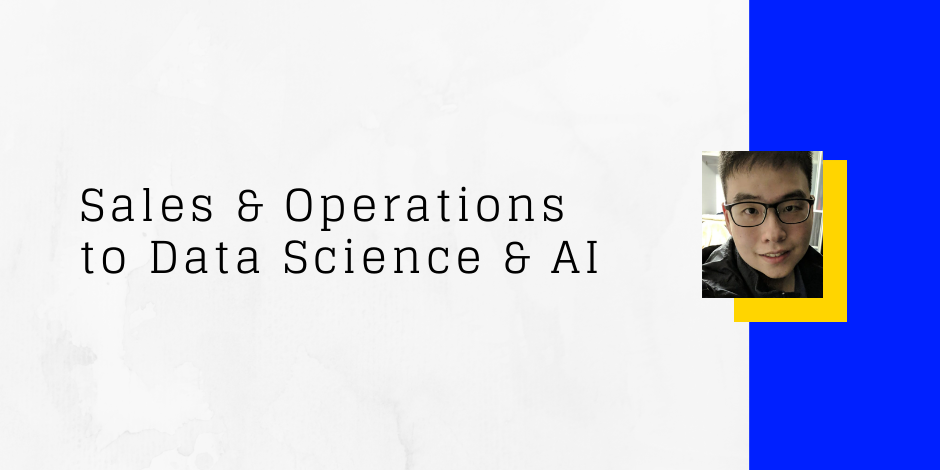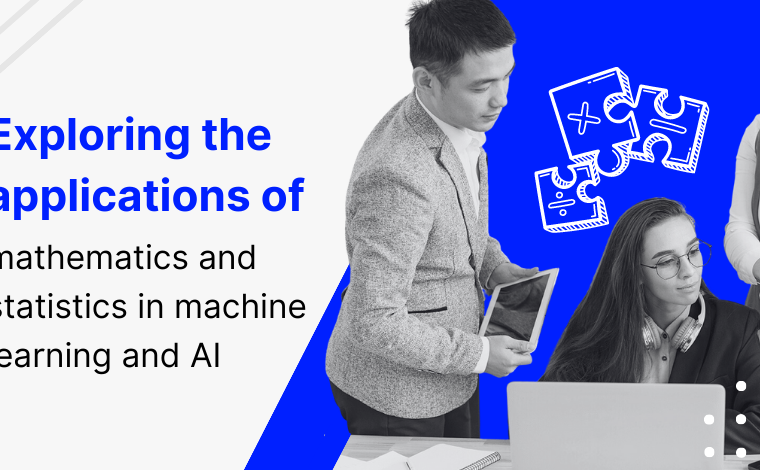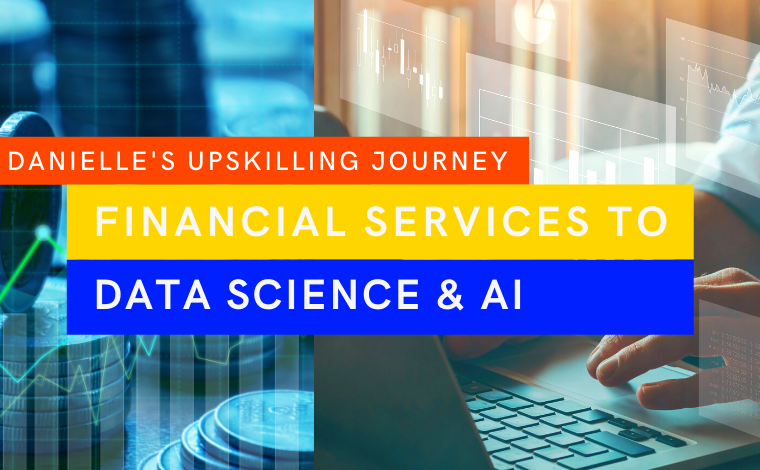How Ryan Re-trained and Transitioned Into a New Data Science Role in Singapore

Stay Informed With Our Weekly Newsletter
Receive crucial updates on the ever-evolving landscape of technology and innovation.
Ryan Low Tian Mun received two job offers before completing his training through the Institute of Data’s Data Science and AI Program. Recognising the global demand for data-driven professionals and evolving roles in industry, Ryan focused on up-skilling and over 6 months – he was mentored and trained by data science experts, allowing him to kick start his data career in Singapore.
With a career background in sales and operations – Ryan now utilises his advanced data skills in his new role as a Data Engineer at ThoughtWorks. The job-ready skills Ryan learned through our Data Science and AI training program have expanded his career prospects in 2021, and his future career is looking brighter than ever. Read about his journey so far:
Can you describe your industry experience prior to making the change to data science & AI?
“I graduated from Nanyang Technological University with a Bachelor degree in Chemistry and Biological Chemistry, and 2 years of professional experience. I entered the working world selling financial products at a startup fintech company. Not long after, the CEO asked me if I wanted to set up a new sales operations department. I started performing analysis on the effectiveness of sales personnel, sales events and how well-received the new product launches are. This is all prior to pursuing the Data Science program.”
Having experience in the Finance industry, how did you transfer and apply those experiences to prepare you to study data science?
“I worked with excel on a daily basis and it really helped to understand the data science libraries such as Pandas. In my opinion, it is essentially a giant excel sheet that is more lightweight with more powerful data manipulation tools.
Before the Data Science program started, I knew which libraries I needed to get familiar with such as NumPy, Pandas, Sci-kit learn, Matplotlib and Seaborn. When it was finally time for the course, I felt that I could understand what I was doing even better and could explore even more features of the libraries. Nowadays I work on automating the entire data ETL pipeline with tools such as airflow and spark.”
Why did you choose to join the Part-Time Program in particular? What appealed to you?
“I initially chose to do the part-time program as I wanted to continue working while doing the program. However, due to the pandemic, the company that I was working at wasn’t doing too well and towards the end of 2020, many employees left or had been retrenched. I actually ended up taking the full-time program so that I could fully focus on what I was learning and then find a job after.”
What did you enjoy the most about the Data Science and AI Program?
“My trainers, Sifat and Gregory, gave the trainees opportunities to work with each other on small assignments throughout the program. I really enjoyed the teamwork aspect of it as you could see the thought processes of others and how they approached problems.””
Tell us about your capstone project! How did you come up with your topic?
“My capstone project was about trying to predict stock price movement based on the activity in the subreddit, r/wallstreetbets. Never before have we seen a subreddit’s activity so talked about on financial news.
To give some background – during Dec 2020 to Feb 2021, the stock price of Gamestop, a game retailer in the United States increased from $12 per share to $400+ at its peak. This drew a lot of media attention and it was just a really interesting situation seeing financial news professionals trying to understand what was going on. The insanity of the whole situation drew me to settling on this topic as I thought that I could have the most fun.”
What did you enjoy the most about your capstone project?
“I enjoyed the fact that I would be working with internet trends, trying to apply NLP techniques to understand what is happening with Gamestop. The topic was already a huge issue on its own due to the way people on the internet were talking about the situation. Participating in this was exciting and gave me new insights.”
What are some tips you would give someone preparing for their Capstone project during the Data Science and AI Program?
“I think that you would have to pick something that you really enjoy doing. If not, you wouldn’t be able to give your all to the Capstone project. No matter how challenging it initially seems, trying a harder fun project is better than trying to give yourself an easy yet boring project.”
In your opinion, how did the program change your perspective on the importance of soft skills in a data science role?
“I knew that communication skills were important in the working world but I think the program did a really good job by giving us practice and pointers on how to communicate effectively to stakeholders.”
You’re now employed in a full-time Data Engineer position – Congratulations! How did you get a job in the industry after completing your training and what guidance would you give someone applying for jobs after upskilling?
“I was advised to start looking for a job halfway through the program. Initially, I wanted to get some interview practise so I started applying for jobs on job portals not expecting to get any offers. I actually managed to land 2 job offers before the program ended! The interviewers were particularly impressed with the data visualisation and technical knowledge that I learned during the program.
As someone who recently switched industries, I’d suggest trying to find an area you have domain knowledge within. This will give you a competitive edge over someone who doesn’t. If you really have to, you can even go for 12 month contract roles to build your industry experience. This will propel your career forward after you’ve proven yourself practically.”
Tell us about your current data engineering role, what does your day to day involve? What tools, techniques or processes do you use?
“I’m still a Data Engineer in training so these are some of the tools/processes I’ve been using recently:
1. Test Driven Development (TDD)– Writing tests to guide the development of applications such that your tests serve as written documentation of the code and any problems are quickly fixed during development.
2. Command line interface – To work more efficiently, and manage the file systems on my workspace.
3. Docker – A technology used to create isolated virtual images of applications so that you don’t need to worry about incompatibility issues.
4. CI/CD Tools (Circle CI) – CI – Continuous Integration: A method of working in a development team where you frequently integrate your code base together. CD – Continuous Deployment – A method to reduce downtime of applications to only push versions of the application that passes all tests.
5. Agile Processes – Daily Standup meetings, writing user story cards, story card estimation, story card kickoffs etc.”
Read: Learning how to learn data science
Read: Switching from a non-IT background to data science
You actually started the course with no IT and coding experience. What advice would you give to professionals that don’t necessarily have existing data experience but want to upskill to data science?
“Programming for data science is much simpler than most people think! The python syntax is very human-readable and you can even understand some snippets without knowing python. You wouldn’t believe how much analytical power you will gain from all the data science techniques that you will obtain from the program.”
Now that you’re trained with in-demand skills and working in the industry, what’s your future career plan?
“The company that I’m currently with, ThoughtWorks is one of the best places to learn about data engineering and software development practices. I want to pick up as many skills as possible from them as possible as I am surrounded by very experienced people.
I intend to learn about the current industry best practices and keep up with the technologies that are currently being used for data engineering.”
Connect with Ryan on LinkedIn here.
If you are interested in up-skilling and landing a new role in the Data Science field in Singapore, schedule a consultation call with a Data Industry Career Consultant today.




